Sentera’s industry-leading agriculture sensors are designed to capture precise, radiometrically accurate plant-level vegetative indices.
Our sensors are fully customizable, allowing you to leverage visual-band imagery as well as NDVI, NDRE, and multispectral data that is meaningful to your operation.
The purchase and use of our sensors becomes a strategic factor for the farmer
CONTACT US TO REQUEST A QUOTE
TEL. +39.039 59 69 875
TEL. +39.039.59.69.8. 62/91/87
FAX. +39.039.92 20.984
EMAIL: CONTACT@SKY53.COM
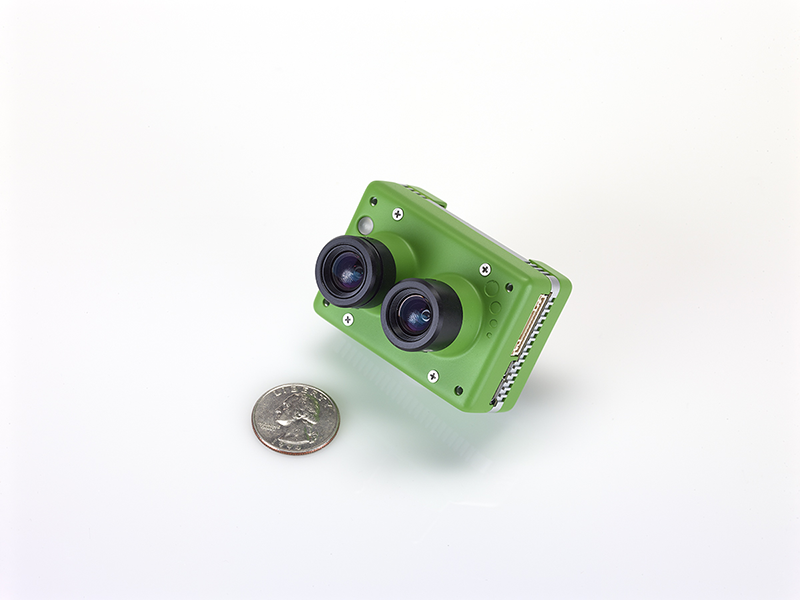
Double 4K Sensor
The Sentera Double 4K is a small, fully customizable twin-imager sensor that is universally compatible with any UAV.
Fitting in the footprint of a GoPro® HERO 4, the rugged, high-throughput Double 4K Sensor is designed for use in harsh environments with configuration options that make it ideal for use in agriculture and infrastructure inspection applications.
Both cameras are capable of capturing high-megapixel color stills, near-infrared (NIR), and normalized difference vegetation index (NDVI) data, and 4K video.
The multispectral Double 4K sensor variant offers five spectral bands: blue, green, red, red edge, and NIR. Using patent-pending technology, Sentera’s Multispectral Double 4K sensor helps agronomists, crop consultants, and growers identify issues with their crops earlier and with greater precision.
View the View the Double 4K agriculture sensor data sheet
View the View the Double 4K NDVI & NDRE sensor data sheet
View the View the Multispectral Double 4K agriculture sensor data sheet
Patent Pending
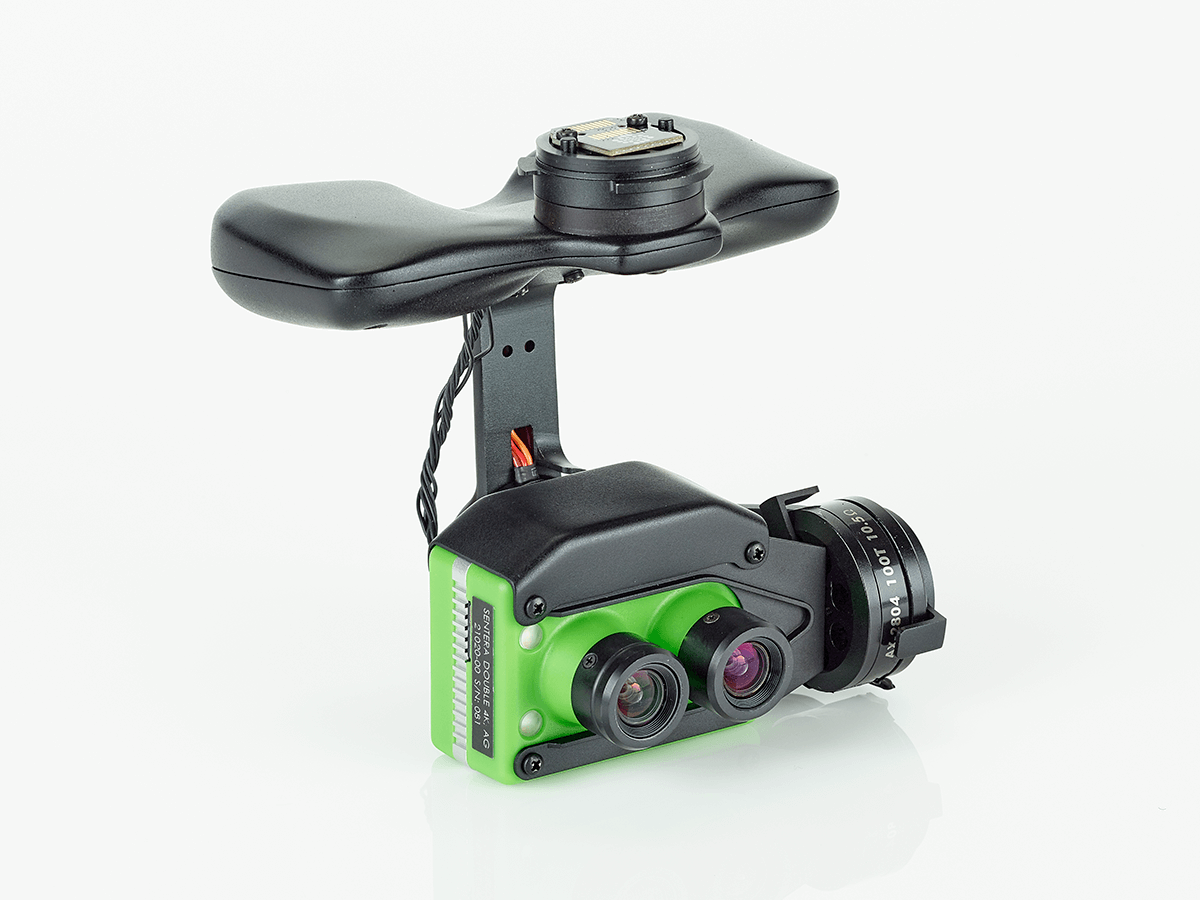
Double 4K Lock & Go Sensor
The innovative Sentera Double 4K Sensor seamlessly integrates onto the robust, high-endurance DJI Inspire 2 and Inspire 1 drones using lock & go technology. With advanced stabilizing gimbal technology, you can easily swap payloads and choose from a variety of sensors to augment your operation.
With this gimbal technology, users can collect visual band (RGB) imagery as well as vegetation indices based on the addition of NIR or Red Edge, including normalized difference vegetation index (NDVI) or normalized difference vegetation red edge (NDRE) data.
Sentera’s Double 4K sensor helps agronomists, crop consultants, and other ag professionals identify crop health issues earlier and with greater precision.
View the Lock & Go sensor data sheet
Patent Pending
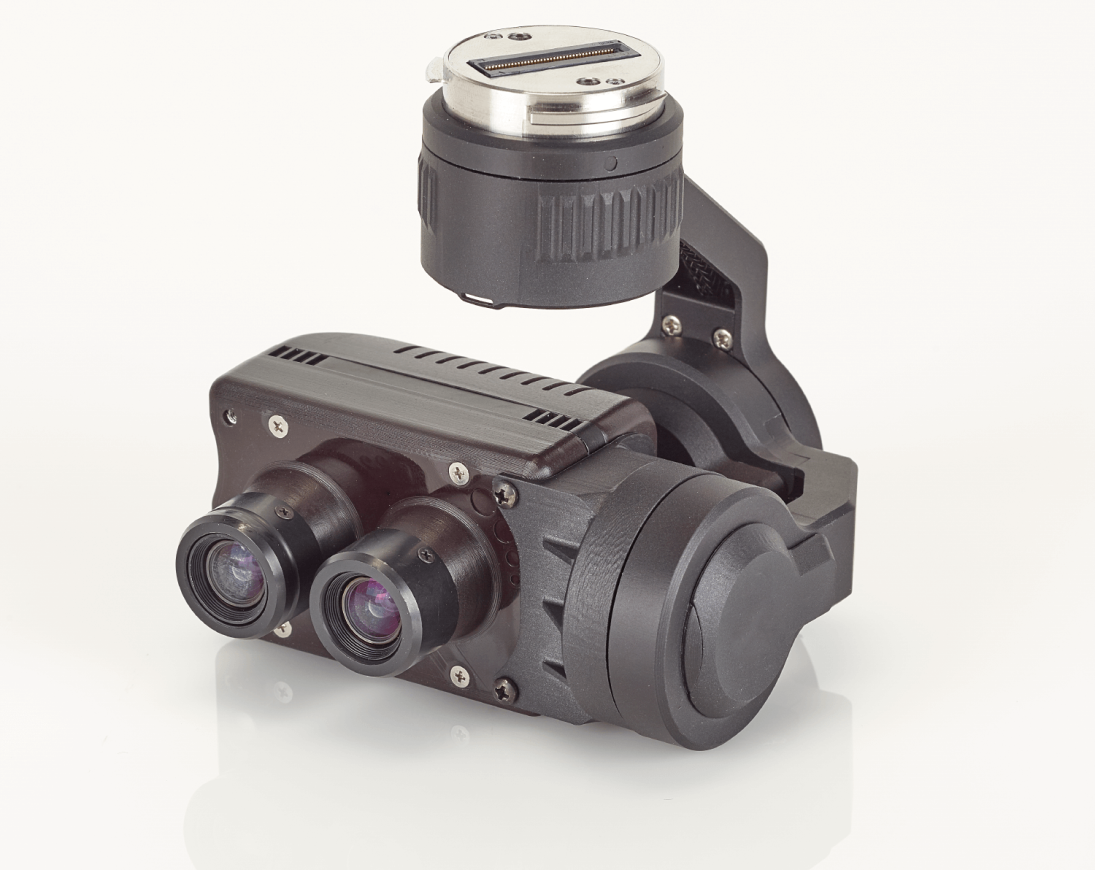
AGX710 Ag Precision Sensor
Integrating onto DJI Matrice 200 Series drones, the AGX710 sensor provides you with exceptional crop health insights.
Using plug-and-play and stabilizing gimbal technology, the AGX710 allows you to easily swap payloads and choose from a variety of sensors to augment your operation. The result: you can quickly capture crop data, developing high-precision spectral index measurements and run deep learning algorithms.
All AGX710 data is compatible with Sentera’s FieldAgent software, allowing you to produce QuickTile crop health maps, stitch your data, run analytics, and push shapefiles (.SHP) to in-field equipment — no internet connection is required!
View the AGX710 data sheet
Patent Pending
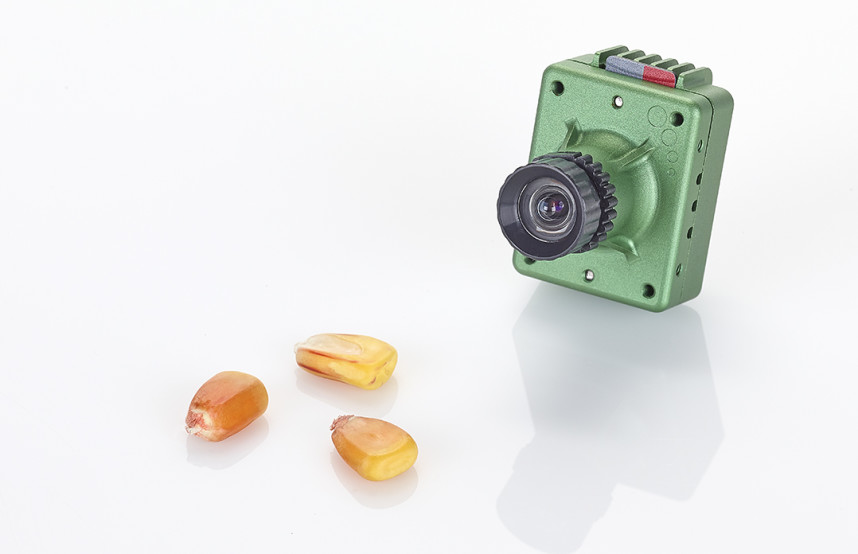
The Sentera High-Precision NDVI & NDRE (Red Edge) Single Sensors
Elegantly engineered, the high-precision Single sensors are specifically designed to monitor crop health through NIR, NDVI, and NDRE (red edge) data collection.
The High-Precision NDVI Single and High-Precision NDRE Single utilize patent-pending technology to improve spectral band separation and generate more accurate vegetation index measurements. The High-Precision Single sensor is available in two variants: normalized difference vegetation index (NDVI) and normalized difference red edge (NDRE).
The Single is unmatched in its performance due to its global shutter, tiny size and lightweight. It’s the world’s best tool for those who want to collect the highest quality NDVI or NDRE data. The High-Precision Single sensors integrate onto any drone, helping agronomists, consultants, and producers identify growth issues earlier and with greater precision.
The sensors are available pre-installed on DJI Phantom 4 Pro V2.0 and Mavic equipment or as dealer-installed upgrades to customer-owned drones.
View the entera High Precision Single data sheet
Review the Quantum Efficiency Curves
Patent Pending
View the Sentera High Precision Single data sheet
Review the Quantum Efficiency Curves
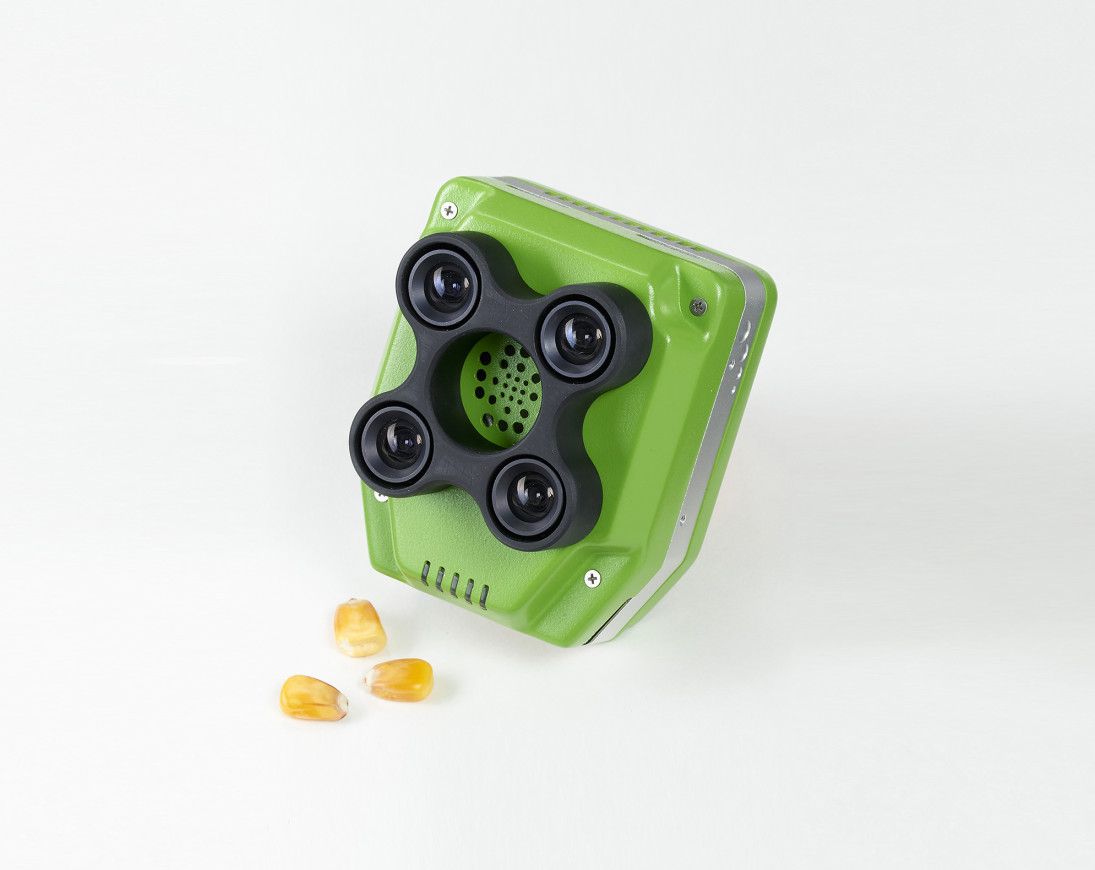
Quad Multispectral Sensor
The Sentera Quad Sensor is the latest in precision agriculture drone cameras. With four fully-customizable multispectral imagers, the innovative sensor offers standard Normalized Difference Vegetation Index (NDVI), Green NDVI, Normalized Difference Red Edge (NDRE), and high-resolution color capture – all in a single flight. The Quad sensor can measure key indicators of chlorophyll in crops.
The intelligence provided by this sensor makes it ideal for universities, researchers, large growers, and advisors to provide high-precision, low-distortion vegetative health data tailored for unique applications.
View the Quad sensor data sheet
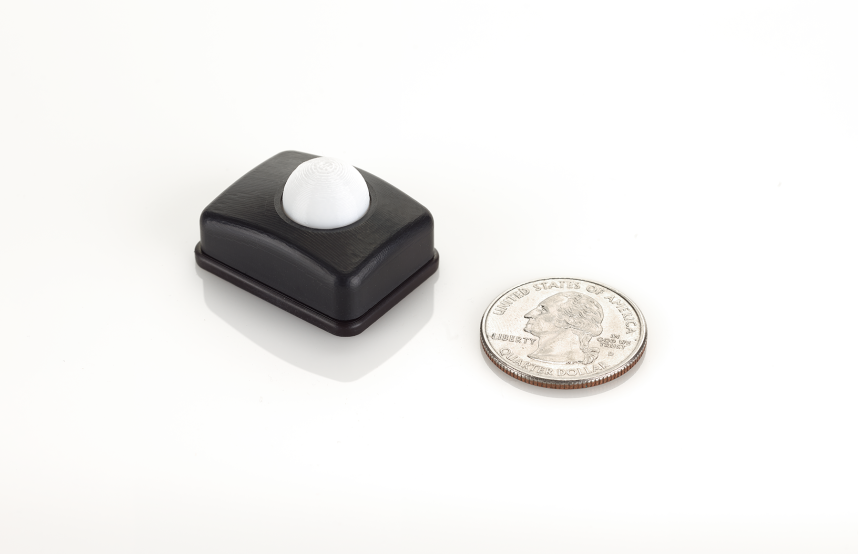
Incident Light Sensor
or several years, Sentera’s research customers have been using Sentera’s Incident Light Sensor (ILS) to measure the color spectrum of incident light from the sun.
Now, these capabilities have been seamlessly integrated into Sentera’s single sensor and will be available for the 2018 growing season in North America. Agronomists, crop consultants, and growers will accurately compare images of the same area, captured over time, to get a true understanding of how their decisions are affecting their intended outcome.
Calculating absolute vegetative health, regardless of cloud cover or timing, enables focusing on results and making better in-field decisions using more accurate data.
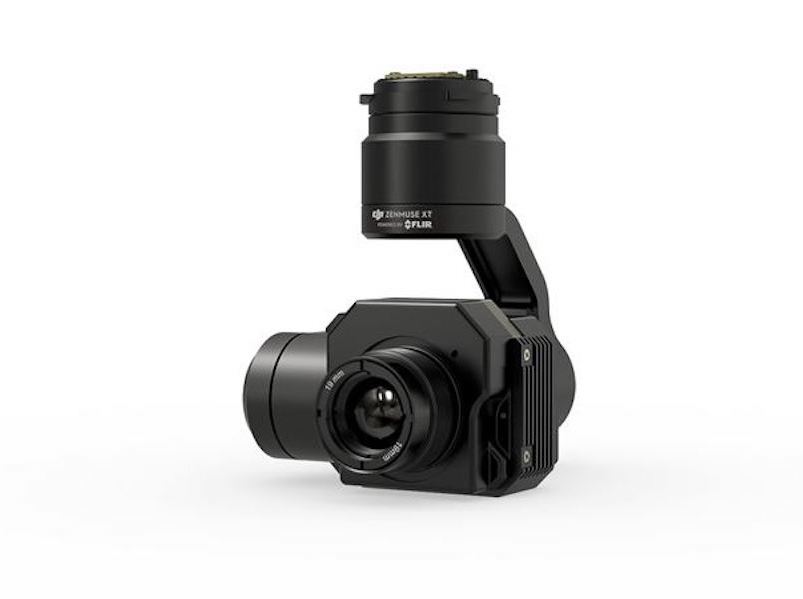
FLIR XT THERMOCAMERA FOR DJI MATRICE SERIES 200 AND INSPIRE 1
This camera has been designed to be used with DJI Insire 1 or DJI Matrce 100. To be able to mount this camera to the DJI Matrix 200 it is necessary to use a quick coupling adapter.
The Matrix 210 offers the opportunity to mount two cameras at the same time and supports the Zenmuse XT camera, to create high-precision surveys. The Zenmuse XT is a thermal imaging camera for professional use for thermal detection is useful for agricultural applications, in the industrial field such as the inspections of buildings to assess heat loss, but also to detect the temperatures of industrial plants, in dangerous situations and carry out detection at a safe distance in complete safety.
SPECIFICATIONS
General
| Model | Zenmuse XT |
|---|---|
| Dimensions | 103 mm x 74 mm x 102 mm |
| Weight | 270 g |
Camera
| Thermal Imager | Uncooled VOx Microbolometer |
|---|---|
| FPA/Digital Video Display Formats |
|
| Analog Video Display Formats | 720 × 480 (NTSC); 720 × 576 (PAL) |
| Pixel Pitch | 17 μm |
| Spectral Band | 7.5 - 13.5 μm |
| Full Frame Rates |
|
| Exportable Frame Rates | 7.5 Hz NTSC; 8.3 Hz PAL |
| Sensitivity (NEdT) | <50 mK at f/1.0 |
| Scene Range (High Gain) |
|
| Scene Range (Low Gain) | -40° to 1022°F (-40° to 550°C) |
| Spot Meter | Temperatures measured in central 4×4 |
| File Storage | Micro SD Card |
| Photo Format | JPEG, TIFF |
| Video Format | MP4 |
Environmental
| Operating Temperature Range | 14° to 104°F (-10° to 40 ?) |
|---|---|
| Non-Operating Temperature Range | -22° to 158°F (-30° to 70 ?) |
| Temperature Shock | 5 ?/min |
| Humidity | 5% to 95% |
Gimbal
| Angular Vibration Range | ±0.03° |
|---|---|
| Mount | Detachable |
| Controllable Range | Tilt:+35° to -90°; Pan:±320°; Roll:±15° |
| Mechanical Range | Tilt:+45° to -135° Pan:±320° Roll:±45° |
| Max Controllable Speed | 120°/s |
Image Processing & Display Controls
| NTSC/PAL (field switchable) | yes |
|---|---|
| Image Optimization | yes |
| Digital Detail Enhancement | yes |
| Polarity Control (black hot/white hot) | yes |
| Color & Monochrome Palettes (LUTs) | yes |
| Digital Zoom |
640 × 512: 2x, 4x, 8x 336 × 256: 2x, 4x |
Lens Models
| Lens Models | 6.8 mm | 7.5 mm | 9 mm | 13 mm | 19 mm | |
|---|---|---|---|---|---|---|
| 17μ 640×512 | FoV iFoV |
/ | f/1.4 90° x 69° 2.267 mr |
f/1.4 69° x 56° 1.889 mr |
f/1.25 45° x 37° 1.308 mr |
f/1.25 32° x 26° 0.895 mr |
| 17μ 336×256 | FoV iFoV |
f/1.4 49.1° x 37.4° 2.519 mr |
/ | f/1.25 35° x 27° 1.889 mr |
f/1.25 25° x 19° 1.308 mr |
f/1.25 17° x 13° 0.895 mr |
| Min Focus Distance | 2.3 cm | 2.5 cm | 3.2 cm | 7.6 cm | 15.3 cm | |
| Hyperfocal Distance | 1.2 m | 1.2 m | 2.1 m | 4.4 m | 9.5 m | |
| Hyperfocal Depth of Field | 0.6 m | 0.6 m | 1.1 m | 2.2 m | 4.8 m | |

